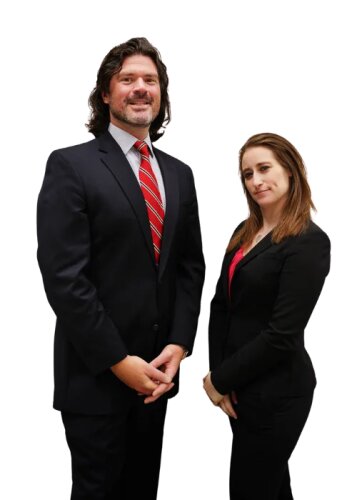Best Citizenship by Investment Lawyers in New York City
Share your needs with us, get contacted by law firms.
Free. Takes 2 min.
List of the best lawyers in New York City, United States
About Citizenship by Investment Law in New York City, United States
In New York City there is no municipal program that grants citizenship by investment. The United States does not offer a direct path to citizenship through a simple investment. The primary route pursued by many high-net-worth applicants is the federal EB-5 immigrant investor program, administered by the U.S. Citizenship and Immigration Services (USCIS).
Under the EB-5 program, eligible investors must fund a qualifying project and create or preserve a specified number of jobs for U.S. workers. If approved, investors receive conditional permanent resident status, which can lead to a standard green card after meeting conditions and residency requirements. In New York City, counsel are often engaged to coordinate project selection, due diligence, and compliance with federal requirements, as well as any New York-based corporate structuring necessary for the investment.
Naturalization, or citizenship, is not automatic and occurs after meeting long-term residency requirements and other eligibility criteria. Investors typically pursue naturalization after several years of permanent residence, subject to continued compliance with U.S. immigration and tax laws. Given the complexity and evolving rules, NYC residents usually rely on specialized immigration counsel to navigate the process.
Important note: The EB-5 pathway and related regulations are federal. There is no separate New York City law granting citizenship by investment. Always verify current requirements on official government sites and work with an attorney to confirm you meet all conditions for your specific situation.
Source: USCIS describes the EB-5 program as a path to lawful permanent residence for investors who create or preserve at least 10 full-time jobs for U.S. workers.
For authoritative, up-to-date information on the EB-5 program, see USCIS and Travel State Department resources linked in the references.
Why You May Need a Lawyer
- You are an NYC investor considering an EB-5 project. A lawyer helps assess whether a project qualifies as a "new commercial enterprise" and whether job creation metrics meet USCIS standards. Complex ownership structures and multiple investors require careful documentation.
- Your funds come from cross-border sources. An attorney guides source-of-funds documentation, anti-money-laundering compliance, and transfer sequencing to satisfy USCIS expectations for funds legitimacy.
- You want to compare regional center versus direct investment. A lawyer explains differences in oversight, reporting, and risk, and helps align structure with your immigration and business goals in NYC.
- You need to respond to an USCIS request for evidence. An experienced immigration solicitor drafts precise responses that address job creation, funds tracing, and project viability.
- You plan a multi-jurisdictional family move. A NYC-based attorney coordinates immigration steps for dependents, tax planning, and residential options in the United States and abroad.
- You seek naturalization after permanent residence. A lawyer reviews residency requirements, preparatory steps, and timing for filing for citizenship to minimize processing gaps.
Local Laws Overview
Key federal statutes and implementing regulations
The Immigrant Investor Program is grounded in the Immigration and Nationality Act (INA) and implemented through federal regulations. The INA sets eligibility for immigration and naturalization, while the Code of Federal Regulations implements specific EB-5 procedures.
Important implementing regulations include 8 C.F.R. Part 204 (Petitions for Immigrant Investors) and 8 C.F.R. Part 216 (Conditional Permanent Residence). These sections govern how investors apply, qualify, and maintain status through the EB-5 process.
New York City investors must comply with both the federal framework and state-level financial and corporate requirements as applicable to investment vehicles formed under New York law.
Source: 8 CFR Part 204 and 8 CFR Part 216 outline eligibility, petitions, and conditional residency procedures for EB-5 investors.
For the statutory framework, see the INA and the federal regulations cited above, which are accessible on official government sites.
Recent changes and effective dates
In 2022, Congress enacted the EB-5 Reform and Integrity Act of 2022 to modernize the program, reauthorize the regional center framework, and implement integrity measures. The law affects how regional centers operate and how investors are evaluated and monitored during the process.
The EB-5 Reform and Integrity Act of 2022 is published as Public Law 117-263 and is accessible on official government repositories. The changes are intended to increase program accountability and clarity for investors and project sponsors nationwide, including New York City projects.
Source: Public Law 117-263, the EB-5 Reform and Integrity Act of 2022, reauthorizes and updates EB-5 regional center operations and integrity provisions.
Updates to the program and related regulatory interpretations continue to emerge. Always confirm the current framework with an immigration attorney and verify details on federal sources.
Frequently Asked Questions
What is citizenship by investment in the United States?
There is no direct citizen-ship by investment program in the United States. The EB-5 program offers a path to lawful permanent residence for eligible investors who meet investment and job-creation requirements.
How does the EB-5 program work?
Investors must fund a qualifying project and create at least 10 full-time jobs for U.S. workers. If approved, they obtain conditional permanent residence and may apply for removal of conditions to gain a standard green card.
Do I need a lawyer to pursue EB-5 in NYC?
Yes. An immigration attorney can assess project eligibility, organize source-of-funds documentation, handle filings, and manage responses to USCIS requests. Local NYC experience is valuable for coordinating with financial advisers and developers.
How much investment is required?
The current framework sets thresholds for standard and TEA-based investments. Exact figures may change with regulations, so consult USCIS resources and a NYC immigration lawyer for the latest amounts.
What is a TEA and how does it affect my investment?
A TEA is a targeted employment area where lower investment thresholds may apply. Defining TEA status involves government-approved designations and project location specifics, which a lawyer helps verify.
How long does the EB-5 process take?
Processing times vary by case and project. The total duration from filing I-526 to obtaining a green card often spans several years, depending on USCIS processing and consular timelines.
Do I need to invest via a regional center or direct investment?
Regional centers offer pooled investment opportunities with streamlined job-creation calculations, while direct investments involve creating jobs in a single business. A lawyer can compare options based on your goals and risk tolerance.
Is there an industry limit for EB-5 investments?
No fixed industry limit exists, but each project must meet the job creation and investment criteria set by USCIS. A lawyer helps evaluate a project’s eligibility and sustainability.
Can funds originate outside the United States?
Yes. Funds from foreign sources are allowed, provided you substantiate lawful origin and provide thorough documentation for USCIS review.
Should I plan for naturalization after obtaining permanent resident status?
Yes. Naturalization requires meeting residency and other eligibility criteria, plus a successful application for citizenship after the required period as a permanent resident.
Is New York City a good location for EB-5 projects?
New York City offers high-profile development opportunities, but projects vary in risk and returns. An NYC immigration attorney can assess project viability, compliance, and local regulatory considerations.
Additional Resources
Use these official sources to verify program requirements and latest rules:
- USCIS EB-5 - Immigrant Investor Program information, forms, and processing guidance: https://www.uscis.gov/eb-5
- Travel.State.Gov EB-5 Immigrant Investor Visa - U.S. Department of State guidance on visa processing for EB-5 investors: https://travel.state.gov/content/travel/en/us-visas/employment/eb-5-immigrant-investor-visa.html
- Public Law 117-263 - EB-5 Reform and Integrity Act of 2022 (official text): https://www.govinfo.gov/content/pkg/PLAW-117publ263/html/PLAW-117publ263.htm
Next Steps
- Define your goals and confirm EB-5 feasibility. Clarify whether you intend a regional center or direct investment, your target NYC area, and your family’s residency plan. Timeline: 1-2 weeks.
- Identify a NYC- based immigration lawyer with EB-5 experience. Look for specialized practice, client reviews, and a clear engagement letter. Timeline: 1-3 weeks.
- Prepare documents and a preliminary funds plan. Gather identity documents, business records, and proof of funds with source-of-funds explanations. Timeline: 2-6 weeks.
- Conduct due diligence on the chosen project or projects. Have your attorney review project viability, job creation metrics, and investment structure. Timeline: 2-6 weeks.
- Engage counsel and file I-526 or equivalent regional center filings. Your attorney coordinates with the investment sponsor and prepares required submissions. Timeline: 6-18 months for initial filing and decision depending on USCIS processing.
- Manage post-approval steps and conditional residence. After approval, obtain conditional permanent residence and plan for removal of conditions (I-829) later. Timeline: 2 years for conditional status; removal typically 1-2 years after.
- Plan for naturalization and long-term compliance. Work with counsel on residency requirements, taxes, and eventual citizenship application if eligible. Timeline: several additional years after green card issuance.
Lawzana helps you find the best lawyers and law firms in New York City through a curated and pre-screened list of qualified legal professionals. Our platform offers rankings and detailed profiles of attorneys and law firms, allowing you to compare based on practice areas, including Citizenship by Investment, experience, and client feedback.
Each profile includes a description of the firm's areas of practice, client reviews, team members and partners, year of establishment, spoken languages, office locations, contact information, social media presence, and any published articles or resources. Most firms on our platform speak English and are experienced in both local and international legal matters.
Get a quote from top-rated law firms in New York City, United States — quickly, securely, and without unnecessary hassle.
Disclaimer:
The information provided on this page is for general informational purposes only and does not constitute legal advice. While we strive to ensure the accuracy and relevance of the content, legal information may change over time, and interpretations of the law can vary. You should always consult with a qualified legal professional for advice specific to your situation.
We disclaim all liability for actions taken or not taken based on the content of this page. If you believe any information is incorrect or outdated, please contact us, and we will review and update it where appropriate.











